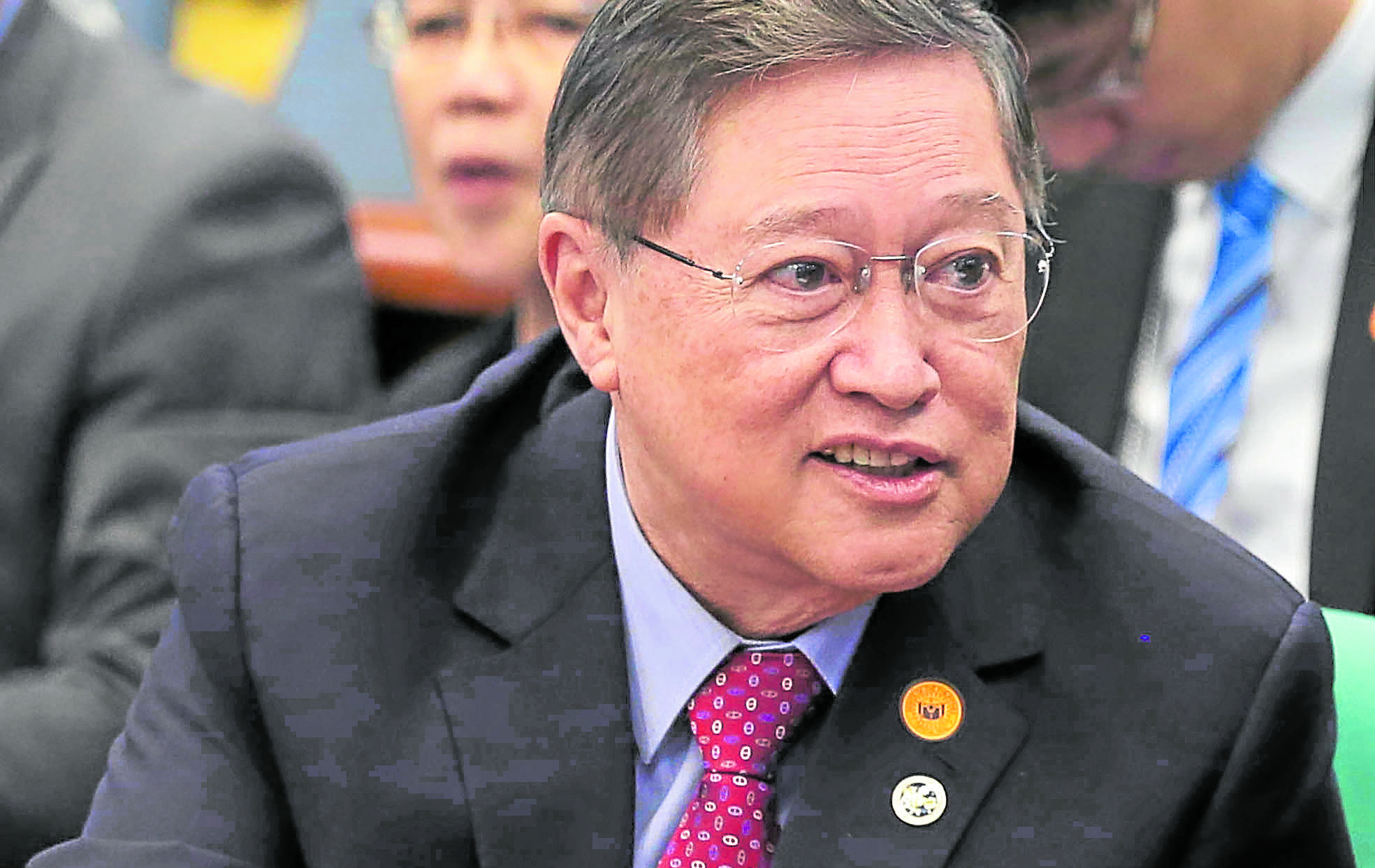
Finance Sec. Carlos “Sonny” Dominguez. INQUIRER FILE PHOTO / JOAN BONDOC
MANILA, Philippines — President Rodrigo Duterte’s economic team on Thursday said resuming all classes in-person would add much more to the windfall to be reaped from Executive Order (EO) No. 166 putting in place the Philippines’ “new normal” policies to make COVID-19 endemic or a part of everyday life.
In a joint statement, Finance Secretary Carlos Dominguez III, Trade Secretary Ramon Lopez, and Socioeconomic Planning Secretary Karl Kendrick Chua lauded the President’s issuance of EO 166 implementing the Economic Development Cluster’s (EDC) 10-point policy agenda to sustain recovery from the pandemic-induced slump two years ago. The Philippines suffered from its worst annual post-war recession in 2020, no thanks to the longest and most stringent lockdowns imposed by the government to contain COVID-19.
Last December, Chua, who heads the state planning agency National Economic and Development Authority (Neda), first pitched the 10-point agenda, which included highlighting only severe infections and measuring deaths as a share of the population in the government’s regular COVID-19 reporting so that more Filipinos won’t be scared to go out.
Also part of the 10-point strategy were ramping up mass vaccination covering a bigger chunk of the population, including children; ensuring adequate healthcare capacity at all times; further reopening of productive sectors plus expanding public transport capacity; resuming face-to-face classes, subject to minimum health standards; removing most local-level restrictions so that vaccinated local tourists can travel across the archipelago; relaxing requirements for returning overseas Filipinos as well as foreigners visiting here; accelerating digitalization; building societal resilience against any future pandemic under a medium-term strategy; as well as enacting a pandemic flexibility bill.
“Better management of COVID-19 risks has enabled the economy to grow above expectations in 2021. With a shift from a pandemic to an endemic mindset, the country can build on these gains to minimize the long-term scarring effects of the pandemic and mitigate the impact of external shocks, such as the Russia-Ukraine crisis,” the economic team said.
Chua said that as of mid-March, 70 percent of the country already moved to the lowest alert level 1 restrictions, which allowed the economy to gain P10.8 billion in output a week and add 195,000 jobs by the next quarter.
But Chua said “the full benefit of alert level 1 cannot be maximized if the majority of schools are still closed for face-to-face learning.”
“Neda estimates that the economy is short of around P12 billion per week since schools are largely closed. Further, one-fourth of parents have to stay at home to help their younger children study in modular or online learning. The result is drastic loss in productivity and foregone income opportunities,” Chua said.
“We urgently call for the full resumption of face-to-face learning in areas under alert level 1. We already have most elements in place to enable our full recovery in 2022. The biggest piece missing is our education sector. More than the foregone economic activity, we are concerned for the learning and future productivity of our children. Under alert level 1, children are allowed to engage in leisure and recreational activities for all indoor and outdoor venues, but the most important activity of children — going to school and learning fully — continues to be restricted,” the Neda chief said.
Dominguez, who heads the economic team, committed to “not slow down in the final months of the administration.”
“We have already seen encouraging results from further reopening the economy. To sustain this, the whole EDC commits to delivering the policies and programs under the EO without letup to lay the foundations for more rapid and inclusive growth,” Dominguez said. While the Inter-Agency Task Force for the Management of Emerging Infectious Diseases (IATF-EID) and the National Task Force (NTF) Against COVID-19 had been tasked to implement EO 166, all of the national government’s pandemic response measures must first be consulted with the EDC.
In the past, the economic team had been “a trio or quartet of lonely voices” in the IATF “trying to put rationality, trying to convince people that the idea of lockdowns don’t really work for the entire community,” Dominguez told senators last year.
RELATED STORY:
Duterte economic team to discuss possible relief amid high oil prices